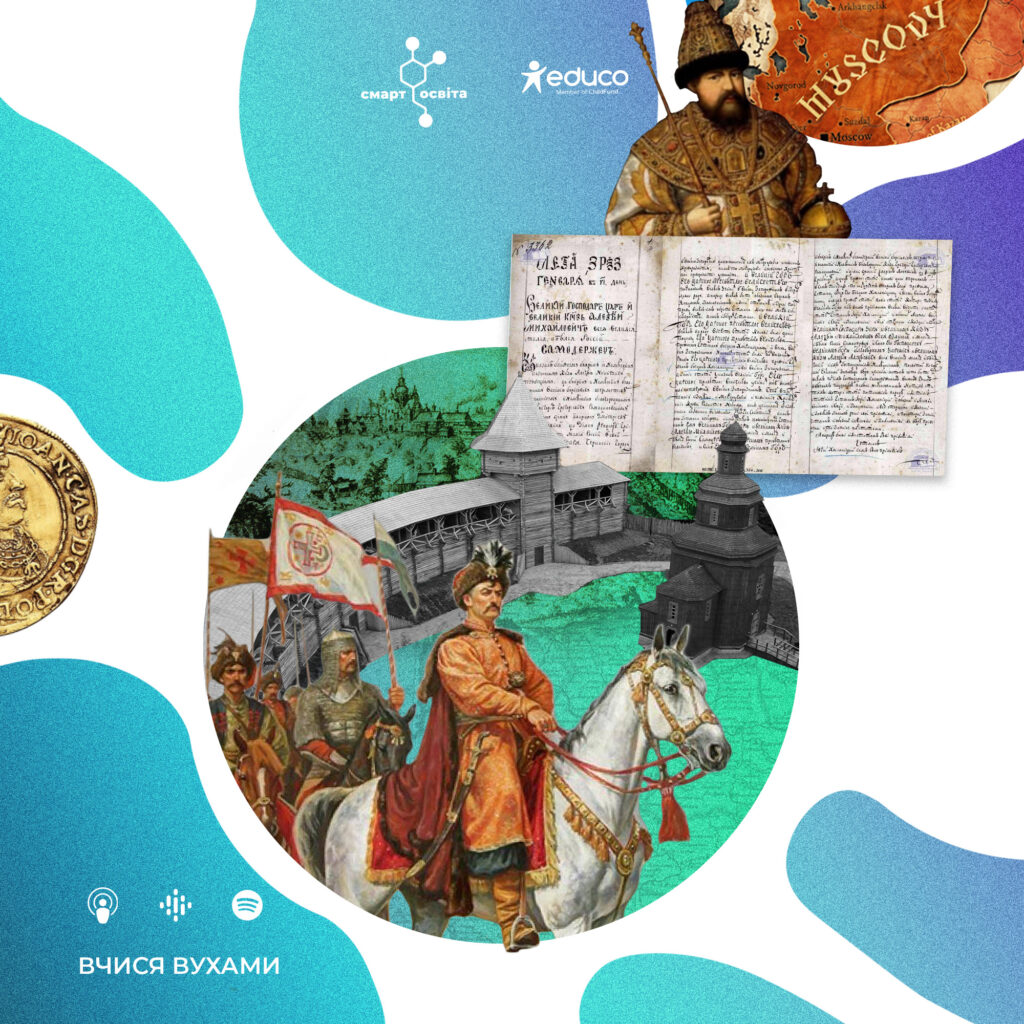

A complex sentence with different types of connections or spelling of suffixes and prefixes sounds not so attractive. But what if these complicated things are explained using examples from favorite songs or the TV series “Wednesday”?
The teachers of the project “Learn with your ears” from the NGO “Smart Osvita” prove that any topic can be presented interestingly if you approach it creatively. “Learn by ear” are audio lessons on the history of Ukraine, the Ukrainian language, and literature for grades 8-11. The twenty-minute episodes of the podcast contain a concise and clear presentation of the topics of the second academic semester. The project is designed primarily for hearing-impaired students and schoolchildren who have vision problems but can hear well. It will also be suitable as an additional resource for consolidating topics studied at school.
It is difficult to interest a modern teenager with a classic presentation of a writer’s biography: he was born, he studied, he wrote, and he got bronzed. Rules explained without an associative series are either jagged or erased from memory over time. But a skilled teacher will always find a way to help not just learn the lesson but to understand. We have for you several examples from various subjects from teachers who inspire.
Ukrainian language
The syntax is one of the most challenging grammar sections, even for philologists, let alone schoolchildren. Ukrainian language teacher Nataliia Vyityk chose examples from pop culture to explain rather tricky topics.
She explains a complex sentence with different connections on the songs of the band ONUKA, Alyna-Alyona, and Jamala. Their songs sound everywhere and sometimes get stuck in your head, so when you have to give an example of a complex sentence on the exam, a line will definitely pop into your head. And she perfectly illustrated the rules of using a colon and a dash in a complex sentence without conjunction with lines from the sensational Netflix series “Wednesday.”
Ukrainian literature
What do we know about Vasyl Symonenko? That he wrote revolutionary poems and died of cancer after being beaten by policemen? We often leave their human side in the shade by focusing on glorifying poets or writers. Literature teacher Olena Sayenko offers to imagine what Vasyl Symonenko’s social networks could be like. Here are posts with lyrical quotes, mom’s comments, and a live recording of the poet’s voice as he recites his poems. Having imagined this, Symonenko appears completely different — not just an iron sixtier, but also a simple dreamy young man from the Poltava region.
History
History is precisely the subject that is important not just to memorize for passing exams but to understand. Tracking the cause-and-effect relationships between the past and the future helps to avoid mistakes, authoritatively declaring in the voice of Kuchma from the meme: “That already happened.” Yevhenii Shelest, a history teacher, in his lesson about the Ukrainian lands as part of the Austrian Empire in the second half of the 19th century, talks, for example, about the search for “good Russians” and what came of it. When discussing the emergence of a nation as a phenomenon, he does not just cite random facts but refers to authoritative researchers: Plochii, Snyder, and Hrytsak. And for a better understanding of the social catastrophe of the refugees from impoverished Galicia, it is recommended to read “The Emperor of America” by Martin Pollack, laureate of the Prize for European Understanding. Convenient: listen to a podcast and add to the must-read list simultaneously.
A matter-of-fact presentation of the material is a losing strategy in learning. As well as the most generalized and detached from-life examples. But if the teacher seeks not just to teach but to understand the teenager, and the cultural phenomena in which he is interested and to use this knowledge creatively, then their cooperation will only improve.
